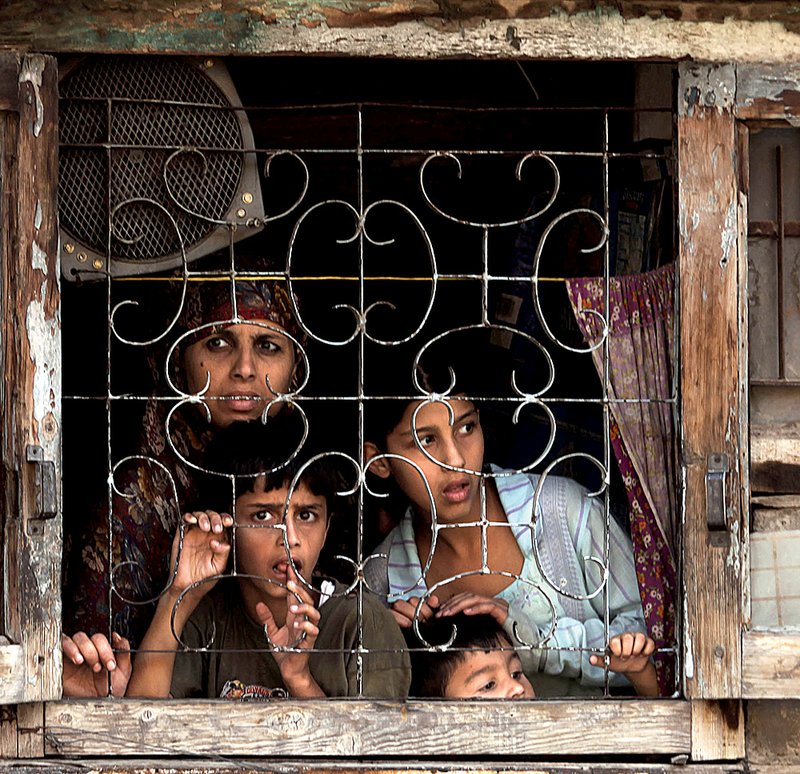NEW DELHI — The Indian government announced a major policy shift in Kashmir on Saturday, calling for the release of jailed student protesters, easing security strictures in major cities, reopening schools and universities, and offering financial compensation to the families of the more than 100 civilians killed since the restive region broke out in protests in June.
Home Minister Palaniappan Chidambaram, who led a parliamentary delegation on a fact-finding trip last week, also said a high-level government committee would be established to open a dialogue with political parties, students and civil society groups in the state of Jammu and Kashmir, the Indian-controlled part of the disputed region.
“We hope that these steps should address the concerns of different sections of Jammu and Kashmir, including the protesters,” Chidambaram said on national television.
Separatist leaders said they were assessing the announcement Saturday night, but several protesters and analysts said that the changes will be judged less by what was said than by how they are carried out.
“People are just cynical,” said Amitabh Mattoo, a Kashmir expert at Jawaharlal Nehru University in New Delhi. “Cynical because of 20 years of conflict and because past dialogues had not gone anywhere.”
Kashmir, the predominantly Muslim region claimed by India and Pakistan, has been embroiled in a crisis for more than three months as stonethrowing protesters have clashed with Indian security officers firing live ammunition. Many of the protesters were demanding independence from India as anger over the heavy security presence in the region boiled over.
For India, the world’s largest democracy, Kashmir had become not only a political and security crisis, but also a major embarrassment as the country prepares to host the Commonwealth Games next week in New Delhi.
In recent days, the Kashmir Valley, including Srinagar, has choked under a stifling curfew enforced with barbed wire and thousands of security forces. Shops have been shuttered, many people struggled to get medicine, and even milk deliveries were halted. Many residents described the situation as “collective punishment.”
Omar Abdullah, the chief minister of the state, called the policy changes “a welcome step.” Abdullah has come under fire from critics who say he has mismanaged the crisis,and has previously called on the central government to ease security laws in the region.
In a statement Saturday, he said that he hoped schools and universities could reopen on Monday but warned that other changes “may take time.”
Mattoo called the announcement an “important beginning,” but also cautioned that it would take time to determine whether the changes would be meaningful. He saidsome Kashmiris had hoped for a bolder announcement, including the removal of emergency laws that grant broad arrest powers and immunity to soldiers and security officers.
Instead, Chidambaram said that the state government would review them.
“Let us see how many of these commitments actually translate into changing the ground reality,” Mattoo said.
The protests began in June and have steadily escalated into a major crisis. Chidambaram said at least 108 Kashmiris have died since June; 194 students were in custody for throwing stones and 51 for violating the Public Safety Act, one of the special laws that grants broad purview to soldiers and security officers. Chidambaram said that the imprisoned students as well as people jailed under the Public Safety Act would be released.
The financial package calls for payments of about $11,000 to the families of the dead.
Abid Nabi, 21, whose 18-year-old brother was shot and killed by the police in Srinagar, was not impressed and cautioned that the broader package from New Delhi might not defuse the protests.
“I cannot sell the death of my brother for [$11,000],” he said in a telephone interview. “I do not think that anybody in Kashmir will accept this money. I lost my 18-year-old brother. Many families lost boys who were 7, 8 or 9. Even if leaders will ask to stop protests, youths will defy them.”
Mattoo said that Kashmiris were deeply skeptical of promises from the Indian government, since so many had been broken. He said if the government proves it is acting in good faith, then Kashmiris, including separatist groups, would give a reciprocal, meaningful response. If not, the anger will only fester.
Syed Ali Shah Geelani, the leader of a hard-line faction of Kashmiri separatists, issued a critical reaction on YouTube, saying that the overall package failed to resolve the core dispute.
Other leaders were still deliberating. “I cannot comment immediately,” said Yasin Malik, head of the Jammu Kashmir Liberation Front. “Our party will meet, discuss and decide on this development.”
Many average Kashmiris hope the announcement will stabilize the region after a bloody summer. Altaf Ahamad Khan, 31, a teacher in the village of Nowpora, expressed hope.
“There should be some peace now,” he said. He lost a friend who was shot by police. “His family is really poor, and they will accept the money announced by the government.”
Front Section, Pages 14 on 09/26/2010
